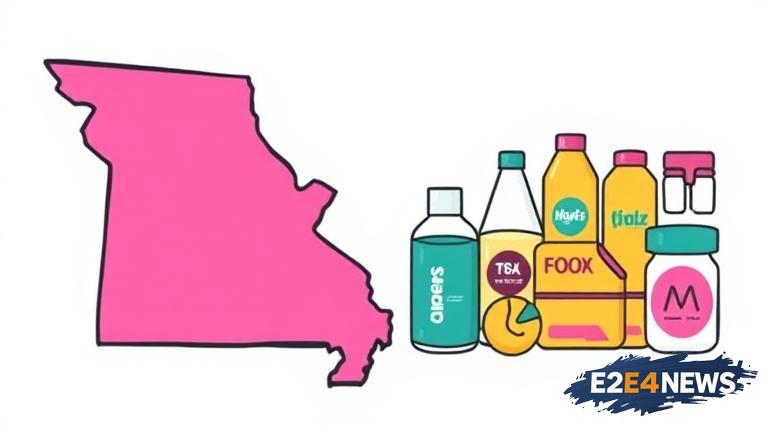In a significant move towards promoting menstrual equity, Missouri has announced that it will exempt diapers and period products from sales tax. This decision is expected to benefit low-income families who struggle to afford these essential items. The exemption will apply to a range of products, including diapers, tampons, sanitary napkins, and menstrual cups. According to estimates, the average woman spends around $150 per year on period products, which can be a significant burden for those living on a tight budget. By exempting these products from sales tax, Missouri aims to reduce the financial strain on families and promote greater equality. The move is also expected to have a positive impact on public health, as access to these products is essential for maintaining good hygiene and preventing health problems. Furthermore, the exemption is seen as a step towards recognizing the importance of menstrual equity, which is the idea that everyone should have access to the products they need to manage their menstrual health. Missouri is not the only state to have taken this step, with several other states already having exempted period products from sales tax. However, the move is still significant, as it highlights the growing recognition of the need to address menstrual equity. The exemption is also expected to have a positive impact on the environment, as many period products are made from sustainable materials and are designed to be reusable. In addition to the exemption, Missouri is also taking steps to increase access to period products in schools and other public facilities. This includes providing free period products in schools and installing menstrual product dispensers in public restrooms. The move is part of a broader effort to promote menstrual equity and reduce stigma around menstruation. By taking these steps, Missouri is helping to create a more equitable and supportive environment for everyone, regardless of their menstrual status. The exemption is also expected to have a positive impact on the economy, as it will help to reduce the financial burden on families and promote greater economic mobility. Moreover, the move is seen as a step towards promoting greater transparency and accountability in the way that period products are taxed. By exempting these products from sales tax, Missouri is helping to create a more level playing field and promote greater fairness in the tax system. Overall, the decision to exempt diapers and period products from sales tax in Missouri is a significant step towards promoting menstrual equity and reducing financial burdens on low-income families. It is a move that is expected to have a positive impact on public health, the environment, and the economy, and is part of a broader effort to create a more equitable and supportive environment for everyone. The exemption is a testament to the growing recognition of the need to address menstrual equity and promote greater equality and fairness in the tax system. As more states take steps to exempt period products from sales tax, it is likely that we will see a significant reduction in the financial burden on families and a greater promotion of menstrual equity. In conclusion, the decision to exempt diapers and period products from sales tax in Missouri is a significant move towards promoting menstrual equity and reducing financial burdens on low-income families. It is a step that is expected to have a positive impact on public health, the environment, and the economy, and is part of a broader effort to create a more equitable and supportive environment for everyone.
